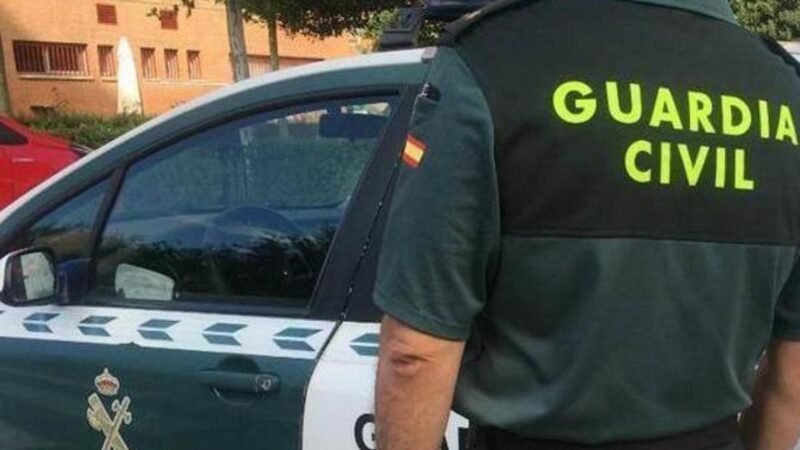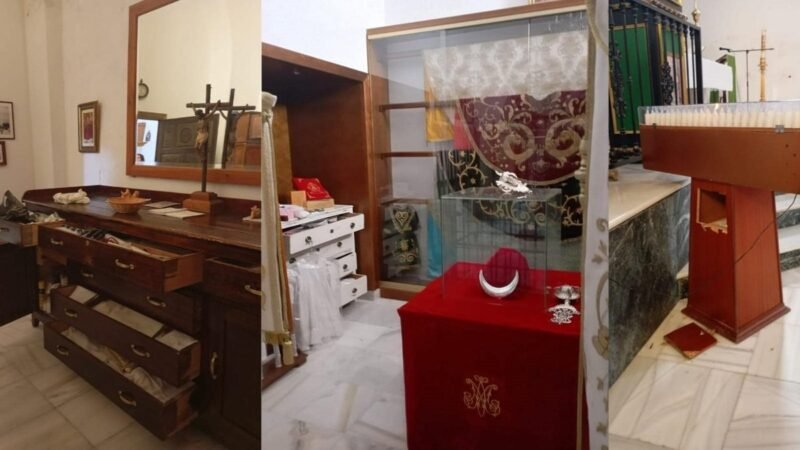ALHENDÍN (GRANADA), 13 (EUROPA PRESS)
The President of the Diputación de Granada, Francis Rodríguez, along with the Minister of Sustainability and Environment of the Junta de Andalucía, Catalina García, led the laying of the first stone of the new pre-treatment line for selectively collected biowaste at Ecocentral Granada, located in the municipality of Alhendín, in the metropolitan area of Granada.
The project has a budget of over 6.5 million euros and has been co-financed by the provincial institution and the regional government, which has contributed 2.5 million euros. The new complex is expected to be operational by the summer of 2026 and will process around 80,000 tons of organic fraction annually.
Rodríguez, accompanied by the Mayor of Alhendín, Jorge Sánchez, and the Director General of FCC Medioambiente, Francisco Javier Irigoyen, stated that «with these facilities, the appropriate pre-treatment of all selectively collected organic waste from the municipalities of the province is guaranteed.»
«One of our main objectives for this term is the environment as an asset, and we have placed waste management as a pillar in the sustainable economic development and promotion of Granada. We are convinced that we must leave behind the concept of waste as something disposable and useless and see the opportunity that its proper management offers, turning it into a secondary raw material and a resource capable of creating jobs and wealth,» he added.
Additionally, the President emphasized that «we have just completed two years in government and we are already seeing the first fruits of the hard work that has been carried out from the beginning. Just two weeks ago, we inaugurated the first phase of the photovoltaic installation.»
«Last week, we received the news that we have been granted another 2.1 million euros to carry out the rest of the photovoltaic installation, with a total investment exceeding 6.3 million euros, which will cover 30 percent of the energy needs of Ecocentral Granada,» he detailed.
Furthermore, as detailed by the Diputación in a press release, the Minister of Sustainability and Environment, Catalina García, explained that «we have decisively committed to supporting local entities in transforming waste management and advancing towards a more circular economy, low in emissions, and committed to sustainability. Biowaste represents one of the main challenges and also one of the greatest opportunities in environmental matters.»
She also expressed that «these types of alliances demonstrate that when administrations cooperate, major projects become possible. Granada is now an example of how well-managed European funds translate into real advances that improve the quality of life for citizens and protect our environment.»
In a press release following this event, the Junta announced that the Minister has announced a new direct grant to the provincial institution for the automated composting plant project. The aid amounts to a total value of 19.4 million at Ecocentral.
«We have decisively committed to supporting local entities in transforming waste management and advancing towards a more circular economy, low in emissions, and committed to sustainability,» García affirmed, highlighting that «biowaste represents one of the main challenges and also one of the greatest opportunities in environmental matters.»
The automated composting plant project, which will also be located at Ecocentral Granada, has a total budget of over 23.9 million euros, of which 15.8 million will be co-financed by the Junta de Andalucía through European funds NextGenerationEU, within the framework of the Recovery, Transformation, and Resilience Plan.
The Minister explained that this new complex, which is expected to be operational by the summer of 2026, will process approximately 80,000 tons of organic fraction collected separately in all municipalities of the province.
The initiative, as detailed by the Diputación, aims to differentiate the treatment of organic fraction from separate collection, with a view to obtaining high-quality compost, improving recovery and recycling yields, reducing landfill waste, and especially decreasing the organic content of these.
The new pre-treatment line includes the construction of a platform for maneuvering and unloading trucks in the reception area, a new pit with the capacity to store up to 80,000 tons of organic fraction annually, equipped with a hydraulic crane with a grab, and the expansion of the existing classification warehouse by 800 square meters to incorporate an exclusive pre-treatment line with a capacity of 25-30 tons per hour.
It also includes a reception area for vegetative fraction to be added to composting and the use of specific areas within the fermentation beds of the environmental complex, separated from the rest of the waste.
The mixture of biowaste and vegetative fraction will undergo composting in a controlled and differentiated environment, ensuring the production of high-quality compost. Additionally, the processed material will be refined in specific facilities. In a second phase, an intensive, automated, and versatile biological treatment adapted to the needs of the increasing selective collection in the province is planned.
This project has been made possible thanks to the grant awarded by the Department of Agriculture, Livestock, Fisheries, and Sustainable Development of the Junta de Andalucía, within the framework of the Support Plan for the Implementation of Waste Regulations, funded by the European Union through NextGenerationEU funds (PRTR), as concluded by the provincial institution.
JUNTA’S INVESTMENT IN VÉLEZ
On the other hand, the Junta added that, in addition to the two major projects in Alhendín, the Andalusian Minister of Sustainability and Environment emphasized that the Department has also allocated a total of 1.94 million euros for the improvement of the Mechanical-Biological Treatment plants in Alhendín and Vélez de Benaudalla, also processed by the Diputación de Granada.
The Minister also spoke of the Andalusian Government’s commitment to improving waste management and supporting municipalities in this task, stating that «we have provided grants and investments amounting to 166 million euros for the implementation of effective waste collection and treatment by municipalities.»
She highlighted the Andalusia Clean Points Plan, «which will bring to life twelve new facilities of this type, with a budget exceeding seven million euros»; the Biowaste Transfer Stations Plan, which has a budget of four million, as well as the various aid lines for separate collection of biowaste worth 45 million euros, to which additional aid worth eight million will be added.






